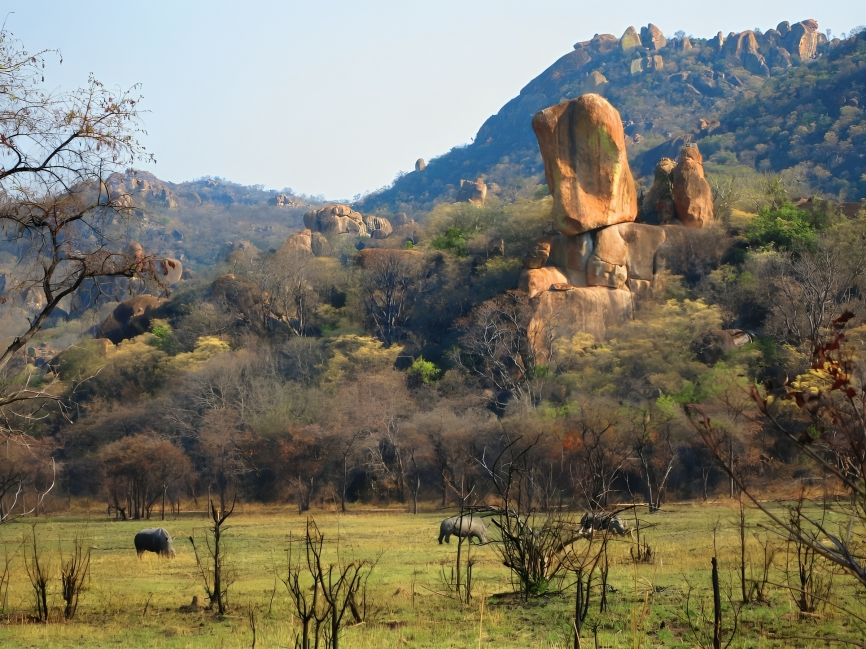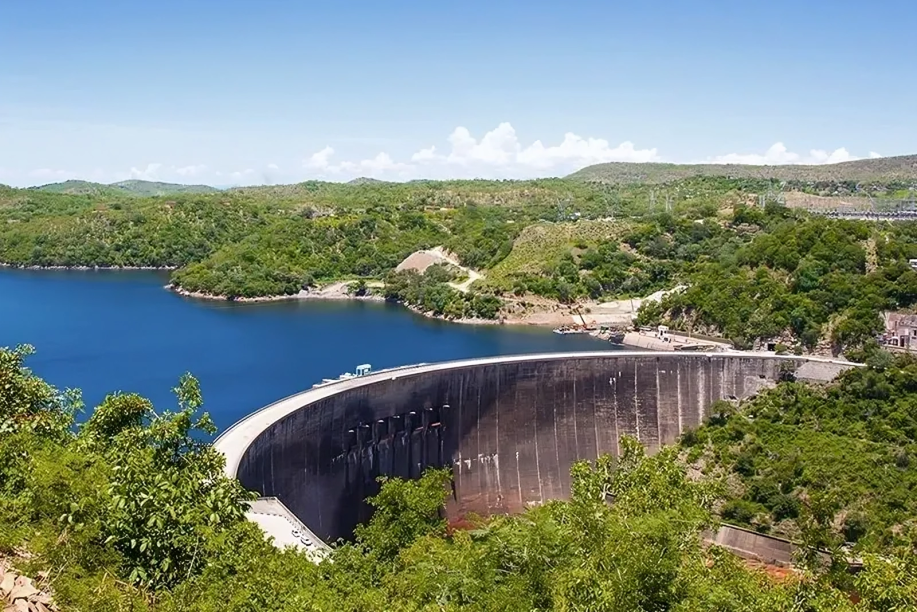Zimbabwe is famous for the amazing Victoria Falls, but it has much more to offer travelers who love Africa’s wild beauty. Beyond the powerful waterfalls, the country has large protected areas full of Africa’s iconic wildlife and beautiful landscapes. Visitors can go on safaris, watch birds, and enjoy cultural experiences in these natural parks that help protect animals and their habitats.
Before you travel, applying for a Zimbabwe eVisa online makes your entry smooth and hassle-free. While Victoria Falls is a must-see, you can also explore more of Zimbabwe and enjoy an unforgettable safari adventure. From wide savannahs and green forests to sparkling lakes, the country’s protected areas are perfect for travelers who want to explore and enjoy peaceful nature.
What Makes Zimbabwe’s Wildlife Areas Special?
Zimbabwe’s conservation areas are carefully looked after to protect the homes of animals like elephants, lions, leopards, rhinos, and many birds. These places are different from regular tourist spots because they give a true nature experience. Visitors don’t see animals in cages; instead, they watch them in the wild, making every safari exciting and real.
These areas also help local communities through eco-tourism and cultural exchange. Many lodges and camps hire local guides, so tourists can learn directly about Zimbabwean culture and the behavior of the wildlife.
Which eVisa Do You Need for Tourism in Zimbabwe?
Planning a trip to Zimbabwe? The first step is to figure out which eVisa suits your travel plans. The type of eVisa you need depends on your nationality and how long you’ll stay. Zimbabwe offers several types of tourist visas, and applying for a Zimbabwe Tourist evisa online is quick and easy. Having the correct visa ensures a smooth and hassle-free entry. Let’s explore the available options so you can choose the best one for your trip.
How To Apply for a Zimbabwe e-Visa
- Check Eligibility: Determine if your nationality requires an e-Visa for tourism.
- Choose Visa Type: Select the appropriate e-Visa based on your purpose and length of stay.
- Complete Online Application: Fill out personal details, travel dates, and upload a valid passport and photo.

- Pay the Fee: Submit the required payment online.
- Receive e-Visa: Once approved, download and print your e-Visa to present upon arrival in Zimbabwe.
Top Safari Destinations Beyond Victoria Falls
Here’s a closer look at some must-visit wildlife areas in Zimbabwe:
1. Hwange – The Land of Giants

Hwange is the largest wildlife reserve in Zimbabwe and is more than 14,600 square kilometers. It is known by the vast numbers of elephant herds and an assortment of wildlife, such as buffalo, giraffes, or predators such as lions and hyenas. Hwange can be explored by both guided and self-driving safari and is the perfect place to spend time in the African wild.
2. Mana Pools – Canoeing with Wildlife

Mana Pools is a UNESCO World Heritage site along the Zambezi River known to harbor floodplain ecosystems. In this case, the visitors will be able to partake in canoe safaris, walking safaris and fantastic bird watching. It is an ideal destination to explore the area with adventurous travelers, who would like to experience wildlife viewing and at the same time enjoy water-based activities.
3. Matobo Hills – A Cultural and Wildlife Haven

The Matobo Hills attract sightseeing because of their dramatic granite outcroppings, ancient rock engravings or rock carvings and black and white rhinos. Hiking lovers will enjoy the beautiful routes and the history lovers can discover the places of cultural values. It has plenty of wildlife and the region has a fantastic combination of nature and culture.
4. Gonarezhou – The Untamed South

Gonarezhou is part of the Great Limpopo Transfrontier Park, a remote park that is characterized by rugged terrain and low tourist numbers. Large elephants, wild dogs, and spectacular birdlife can be seen by the visitors. This is the right place to visit when you want to have a more out of the beaten track safari experience.
5. Lake Kariba – Fishing and Bird Watching Paradise

Lake Kariba is among the biggest artificial lakes in the globe, which present breathtaking views, and chances to fish, boat and see hippos as well as crocodiles. The nearby ecosystem harbours a wide variety of wildlife and thus it is a combination of both aquatic and terrestrial adventure.
Safari Activities to Try
Zimbabwe’s protected areas offer a wide range of activities for all kinds of travelers:
- Game Drives: The most popular way to spot wildlife, either in open-top vehicles or guided tours.
- Walking Safaris: Experience the bush on foot with a trained guide for an intimate wildlife encounter.
- Canoeing Safaris: Glide along rivers and floodplains while spotting aquatic animals and birds.
- Bird Watching: With over 600 species, Zimbabwe is a paradise for bird lovers.
- Photography Tours: Capture stunning wildlife and landscapes with expert guidance.
Quick Guide Table: Zimbabwe’s Key Wildlife Areas
Wildlife Area | Highlight Species | Best Time to Visit | Activities |
Hwange | Elephants, Lions, Buffalo | May – October | Game drives, photography |
Mana Pools | Hippos, Crocodiles, Elephants | May – October | Canoeing, walking safaris |
Matobo Hills | Black & White Rhinos, Leopards | April – September | Hiking, cultural tours |
Gonarezhou | Wild Dogs, Elephants, Birds | May – October | Game drives, walking safaris |
Lake Kariba | Hippos, Crocodiles, Birds | Year-round | Fishing, boating, bird watching |
Best Time to Visit in Zimbabwe
Zimbabwe has most of its wildlife areas that can be regarded as best during the dry season which occurs between May to October. Animals are also seen clustering around water bodies in this season and are therefore easier to see. Temperatures are lower and sceneries are not that thick and this enhances visibility during safaris and photography.
Tips for an Unforgettable Safari
- Book Early: Popular lodges and safari camps fill up quickly.
- Pack Smart: Include neutral-colored clothing, hats, sunscreen, insect repellent, and binoculars.
- Respect Wildlife: Keep a safe distance and follow guides’ instructions.
- Stay Hydrated: Carry water during game drives or walking safaris.
- Embrace Local Culture: Interacting with local communities can enrich your experience.
Frequently Asked Questions (FAQs)
Q1: Do I need a guide for safari tours in Zimbabwe?
A: While some areas allow self-drive safaris, hiring a professional guide enhances your experience by helping spot wildlife and explaining animal behavior.
Q2: Are safaris safe for families?
A: Yes, many lodges and camps are family-friendly, but it’s essential to follow safety rules and stay inside vehicles during game drives.
Q3: What should I wear on a safari?
A: Neutral-colored clothing (beige, khaki, green) is best. Avoid bright colors as they may disturb animals. Comfortable shoes are essential for walking safaris.
Q4: Can I visit multiple wildlife areas in one trip?
A: Absolutely. Many travel itineraries combine Hwange, Matobo Hills, and Lake Kariba for a diverse experience.
Q5: Is Zimbabwe expensive for safari trips?
A: Costs vary depending on accommodation and activities. There are options for budget, mid-range, and luxury travelers.
Conclusion
It is a trip into the wilderness of the African continent to explore the protected areas of Zimbabwe other than Victoria Falls. Whether it is the elephant populations of Hwange or the canoeing trip of Mana Pools, each place is a distinct experience to the wildlife enthusiast, photographer, and the adventurer alike. Travelers who visit these locations do not only see amazing biodiversity but also help preserve wildlife, as well as empower local communities.
Be it an exciting game drive, a leisurely canoefare or a cultural expedition in the Matobo Hills, Zimbabwe offers you an








